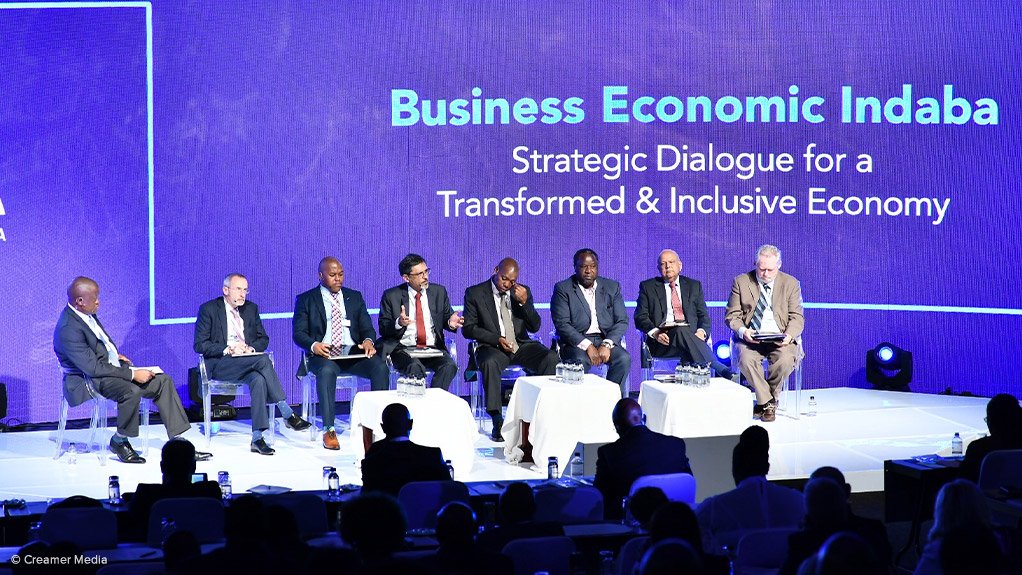Steps need to be taken to improve South Africa’s poor growth performance in a manner that is economically inclusive and equitable, a panel of Ministers outlined during the Business Unity South Africa Business Economic Indaba, in Midrand, on Tuesday.
Finance Minister Tito Mboweni stressed that policy certainty needed to be restored, first and foremost, because it sends a specific message to the economic agents in the country and internationally.
He pointed out that the country and investors needed certainty about the inflation target, a fiscal regime that is sustainable, continued support for the automotive industry programme, the practical implementation of the special economic zones, the approach towards agriculture and South Africa’s approach to the Fourth Industrial Revolution, as well as certainty about government’s approach to State-owned entities going forward.
Mboweni noted that tourism, especially, was a low hanging fruit, with the potential to create thousands of jobs.
“It is not just about visas, although it is important. There are also infrastructure issues, the facilities, training of people involved in tourism.”
Public Enterprises Minister Pravin Gordhan echoed Mboweni’s sentiments and added that inclusive growth was about including people in the processes of economic activity.
“A key debate is how do we share the benefits of growth with the citizens of the country. There are ideas but the actual mechanisms and tools are not very clear on this. Traditionally, it happens through the tax system.
“We have an insider/outsider problem. The outsiders find it difficult to come inside . . . we need to develop new mechanisms in that regard. The rest of the formula is known – confidence building, increasing private sector investment. In addition, soft issues need to be looked at as well.”
Gordhan explained that South Africa needed to build a sense of common purpose, noting that the country was not aligned.
“We attend summits, but that is not the same to having a passion towards serving the nation and cultivating a collaborative culture.”
He also stated that risk sharing between the private and public sectors was also affecting the country’s growth.
“Government takes the lion’s share of risk, whether it is infrastructure investment or social investment. Private sector is hesitant to take a lead, owing to the risk being too great. Both must focus on getting things done and implementing ideas.
“Only through implementation will we learn if ideas are working or not, and from there on will come lessons on future endeavours.”
Trade and Industry Minister Dr Rob Davies gave insight into how South Africa should position itself internationally.
“We need to find markets for production, particularly nontraditional products. Thirty-seven per cent of our exports are into Africa, of which a third are value-added products.
“Africa is a major focus area for us, because those countries also want to industrialise. We need regional integration and regional value-chain creation, which will allow for more complex product trading.”
Davies added that, to foster continental inclusive growth, Africa needed to develop trade rules for Fourth Industrial Revolution-related products and services, because that was where the world's, and South Africa’s, markets for growth were going.
Further, Cooperative Governance and Traditional Affairs Minister Dr Zweli Mkhize highlighted the role of municipalities in fostering inclusive growth.
“The environment in which all the business is taking place has to be conducive and municipalities have a major role to play at that level. Every part of government is concerned about the state of municipalities and whether they are enabling and supporting business to grow.
“Municipalities need to offer a competitive environment that attracts global businesses to settle there. Every business happens in a municipality,” Mkhize said, pointing out that his department has identified issues that are being addressed at municipalities across the country.
These issues include issues of governance, skills levels, self-regulating rules and dealing with processing of applications, and needed to be resolved.
“To facilitate inclusive growth, municipalities also need financial management and proper tender procedures and qualified individuals to deal with that. These problems affect businesses in the municipality. Service delivery problems and infrastructure problems need to be addressed, as well as the lack of technical skills.”
Moreover, he pointed out that fraud, corruption and criminality heavily hampered inclusive business growth.
“We need to create an environment that is supportive of businesses, dealing with areas with early interventions. In the long term, every mayor should say they are a champion of growth in their area,” Mkhize lamented.
Economic Development Minister Ebrahim Patel, meanwhile, said there was a call for a broader social compact, dealing with issues of jobs and growth. He explained that the success of a social accord is not what you demand, but what you bring.
“True social accord is that set of trade-offs in the short term that create conditions for longer-term prosperity. Focus on supply side reforms – in skills, technology, boosting investment and improving infrastructure.
“On the demand side, there needs to be development of the market. We signed the continental free trade agreement, and [if] implemented [well], it is a game changer, equating to a bigger labour base and widening of our markets, as well as deepening of markets.
“Equitable growth is about developing your own markets. When unemployed people get jobs, they become consumers. We need to deal with these issues as a critical part of growing dynamic and deep markets and not just the social imperative and political agenda,” Patel stated.
He added that much of the national conversation is about policy perfection and not enough about learning from past mistakes.
“There is not a silver bullet that solves it all, we need to learn from our experiences and bring that to 'social according'. Do not spend time perfecting models [on] paper, get down to executing.”
EMAIL THIS ARTICLE SAVE THIS ARTICLE ARTICLE ENQUIRY
To subscribe email subscriptions@creamermedia.co.za or click here
To advertise email advertising@creamermedia.co.za or click here











